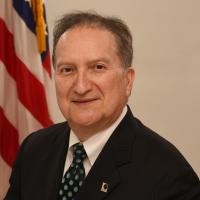 By Robert Otto Valdez, Ph.D., M.H.S.A., Director, AHRQ
By Robert Otto Valdez, Ph.D., M.H.S.A., Director, AHRQ
LinkedIn: Robert Otto Valdez, PhD MHSA
LinkedIn: Agency for Healthcare Research and Quality
The Ben Franklin proverb, “An ounce of prevention is worth more than a pound of cure,” has never rung truer than it does today. I have long thought preventive healthcare is the key to living longer and healthier lives. Prevention is primary. Over the years, medical research has made tremendous progress in preventing disease. Having been involved in healthcare for more than 40 years, I can confidently tell you that the U.S. Preventive Services Task Force and its evidence-based recommendations are one of the most incredible resources healthcare professionals have come to rely on.
The Task Force—an independent, volunteer panel of 16 prevention and primary care experts—issues recommendations based on the latest research about the benefits and harms of preventive services. These evidence-based recommendations guide people’s care nationwide and serve as the basis for insurance coverage policies and other care delivery decisions.
From my first interaction with the Task Force, I was impressed by how this group methodically and objectively approached and reviewed the latest scientific evidence, as it does for each of its more than 88 health topics, ranging from screening for anxiety disorders and depression to aspirin use to prevent cardiovascular disease and cancer screenings such as for breast or colorectal cancer.
My colleagues and I are proud of the agency’s support of this work, and we are delighted to join the Task Force throughout 2024 in commemorating its 40th anniversary. As authorized in the Public Health Service Act, AHRQ convenes the Task Force and provides scientific, administrative, and dissemination support. AHRQ also plays an essential role in nurturing Task Force partnerships with national primary care, specialty, and patient advocacy organizations and health-related federal agencies to communicate recommendations to clinical and research communities.
Undoubtedly, the Task Force’s impact became more pronounced in 2010, when national leaders tackling healthcare reform turned to the panel as a premier authority on preventive services. This recognition of the potential life-saving benefits of preventive care led to the Patient Protection and Affordable Care Act, mandating that private insurers cover Task Force-recommended preventive services, graded A or B, at no cost to patients. This landmark legislation underscored the necessity of and reliance on evidence-based guidance from a trusted source.
In recent times, the Task Force has affirmed its commitment to health equity, a cornerstone of its mission to enhance health for all. The Task Force is focused on integrating health equity into all its processes to ensure it addresses the needs of populations with health disparities, particularly those affected by systemic racism. Identifying evidence gaps, especially for underserved populations, is a key aspect of this commitment.
Irrespective of the clinical topic, the Task Force has embraced the necessity to stay responsive to the swift pace of advancements in healthcare research. A prime example of this was last August when the Task Force swiftly issued an updated recommendation on the prevention of HIV through preexposure prophylaxis (PrEP). In response to a new formulation of PrEP (an injection) and recent studies, the Task Force expedited its review and issued a new updated recommendation that was in step with the latest advancements in HIV prevention.
As we look ahead to the next 40 years, I know that the Task Force will continue serving as a trusted, valuable resource that patients, primary care clinicians, professional societies, and policymakers will depend on to identify what works to help prevent disease and prolong a healthy, productive life.
This article was originally published on AHRQ Views Blog and is republished here with permission.
